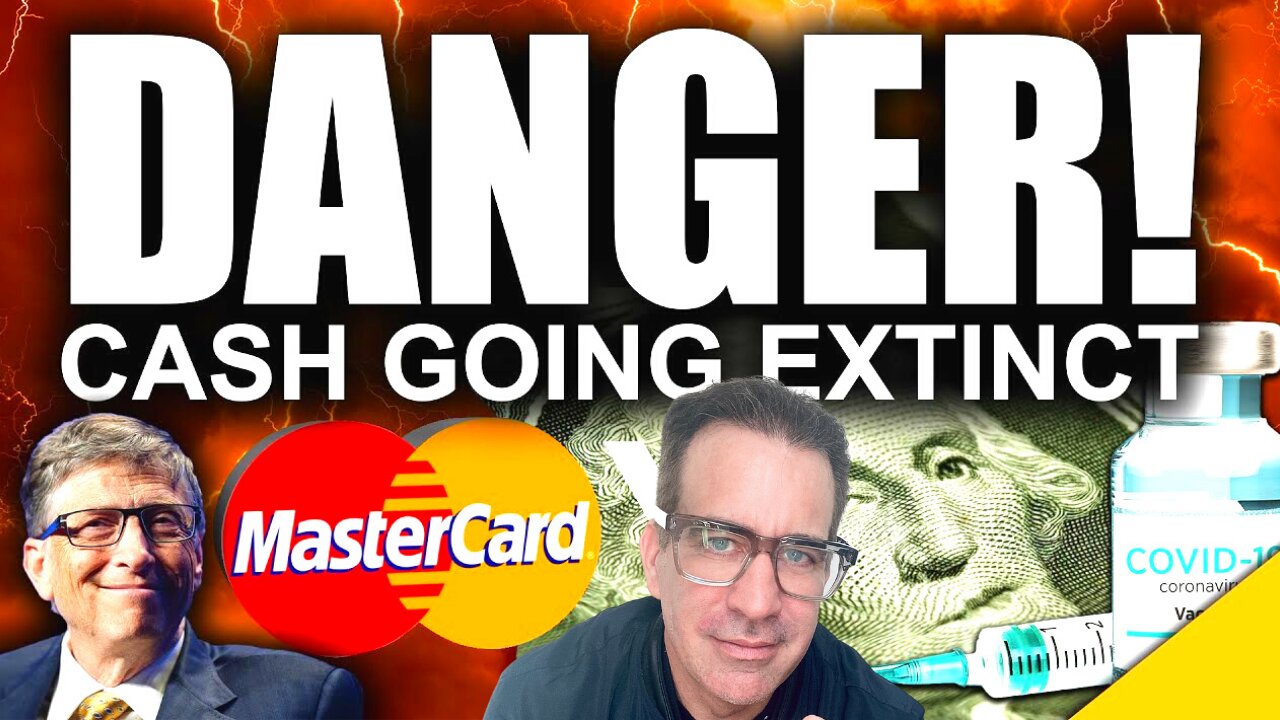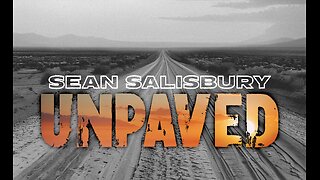Premium Only Content

CASHLESS SOCIETY?
ARE WE GOING TO A CASHLESS SOCIETY? A 100% cashless society might not be as easy as you think!
A cashless society describes an economic state whereby financial transactions are not conducted with money in the form of physical banknotes or coins, but rather through the transfer of digital information (usually an electronic representation of money) between the transacting parties. Cashless societies have existed from the time when human society came into existence, based on barter and other methods of exchange, and cashless transactions have also become possible in modern times using credit cards, debit cards, mobile payments, and digital currencies such as bitcoin. However this article discusses and focuses on the term "cashless society" in the sense of a move towards, and implications of, a society where cash is replaced by its digital equivalent—in other words, legal tender (money) exists, is recorded and is exchanged only in electronic digital form.
CONCERN:
Lack of privacy
In a digitized economy, payments made will be traceable. With traceable transactions, institutions would have potential access to this information. With these digital traces left behind, digital transactions become vulnerable. Such transactions allow businesses a way to build a consumer's personal profiles based on their spending patterns. The issue of data mining also comes into place as countries head towards a cashless society. Cashless transactions leave a record in the database of the company as one makes a payment, and this information becomes a way for the prediction of future events. Through a large number of records, data mining then allows the organization to compile a profile of an individual through its records in the database.
Going all-digital, these data retrieved from transactions lead to widespread surveillance where individuals can be tracked by both corporations and the government.[39] These records might also be available to hackers and could be made public after a data breach.
Problems for the unbanked
Cashless systems can be problematic for people who currently rely on cash, who are concentrated in certain populations such as the poor, disabled, elderly, undocumented immigrants, and youth. Electronic transactions require a deposit account (in a bank or other deposit-taking financial institution) and some familiarity with the payment system. Many people in impoverished areas are underbanked or unbanked.[42] In the United States, almost one-third of the population lacked the full range of basic financial services in 2012. In 2011, an FDIC survey found that approximately one-quarter of households whose annual income was less than $15,000 had no bank account. Nationwide, 7.7% of people in the United States did not have bank accounts, with levels over 20% in some cities and rural counties, and over 40% in some census tracts, as of 2016.
As part of its Smart Nation initiative, Singapore has been moving towards a cashless economy. In 2017, 14.4% of the country's population was over 65 years old, and the majority of seniors still used cash as their only method of payment. Not used to digital payment methods, troubleshooting issues such as managing lost cards or passwords and managing their expenses can create potential trouble for anyone transitioning from cash.
Digital fraud
When payment transactions are stored in servers, it increases the risks of unauthorized breaches by hackers. Financial cyber-attacks and digital crime also form a greater risk when going cashless. Many companies already suffer data breaches, including payment systems.Electronic accounts are vulnerable to unauthorized access and transfer of funds to another account or unauthorized purchases.
Attacks on or accidental outages of telecommunication infrastructure also prevent electronic payments from working, unlike cash transactions which can continue with minimal infrastructure.
Centralized control
Opponents point out that an entirely cashless system, in addition to tracking all transactions, would enable a central government to:
Enforce a transaction tax on every person-to-person payment
Eliminate the storage of cash as a means to escape nominal negative interest rates, which are used to fight deflation by discouraging savings (most effective if combined with bans on barter, private currencies like bitcoin, and storage of precious metals like gold). Certain types of money could be set to "expire" and be worthless if not spent in specific ways or by specific times. This is also possible with cash if the government allows high inflation or lets its currency undergo a devaluation.
Criticism in Sweden
Sweden is one of the best examples of the results of efforts to create a cashless society. Sweden is exceptional in that the amount of cash in circulation has reduced substantially. Swedish society changed profoundly from 2000 to 2017 due to attempts to replace all cash with digital payment methods.
-
 1:14:04
1:14:04
NONCONFORMING-CONFORMIST
1 year agoYOU HAVE TO PAY A LOT AND IN SO MANY WAYS TO TAKE PART IN THIS WORLD
562 -
 LIVE
LIVE
Dr Disrespect
5 hours ago🔴LIVE - DR DISRESPECT - PUBG - DANGEROUS
2,693 watching -
 LIVE
LIVE
StoneMountain64
3 hours agoStreamer Meta Loadout really do go Crazy
309 watching -
 1:53:00
1:53:00
The Quartering
4 hours agoEpstein Wife To TESTIFY, Dan Bongino Mulls QUITTING, Texas Church Incident & More
118K26 -
 2:00:31
2:00:31
Tucker Carlson
4 hours agoWalter Kirn Provides Update on Luigi Mangione Case and the Strange Parallels to Lee Harvey Oswald
81.1K49 -
 LIVE
LIVE
GritsGG
7 hours agoWe Are Winning Every Game!!!! Most Wins 3004+! 🔥
83 watching -
 1:25:46
1:25:46
Russell Brand
4 hours agoShocking Update On “Edited” Epstein Prison Footage – Ghislaine Maxwell Ready To Reveal Truth -SF613
156K21 -
 43:17
43:17
BitLab Academy
6 hours ago $1.14 earnedBitcoin $160k Next! Altcoins Breakout! Altseason Starting? $Eth $Sui $Algo $Link $Xlm $XRP $TAO
18.4K -
 1:04:36
1:04:36
Timcast
4 hours agoBiden Pardons ARE FAKE, NYT Reports HE DID NOT Authorize Them, Democrats DENY
183K147 -
 1:22:45
1:22:45
Sean Unpaved
4 hours agoFourth and Goal: The NFL's Big Questions
28.5K